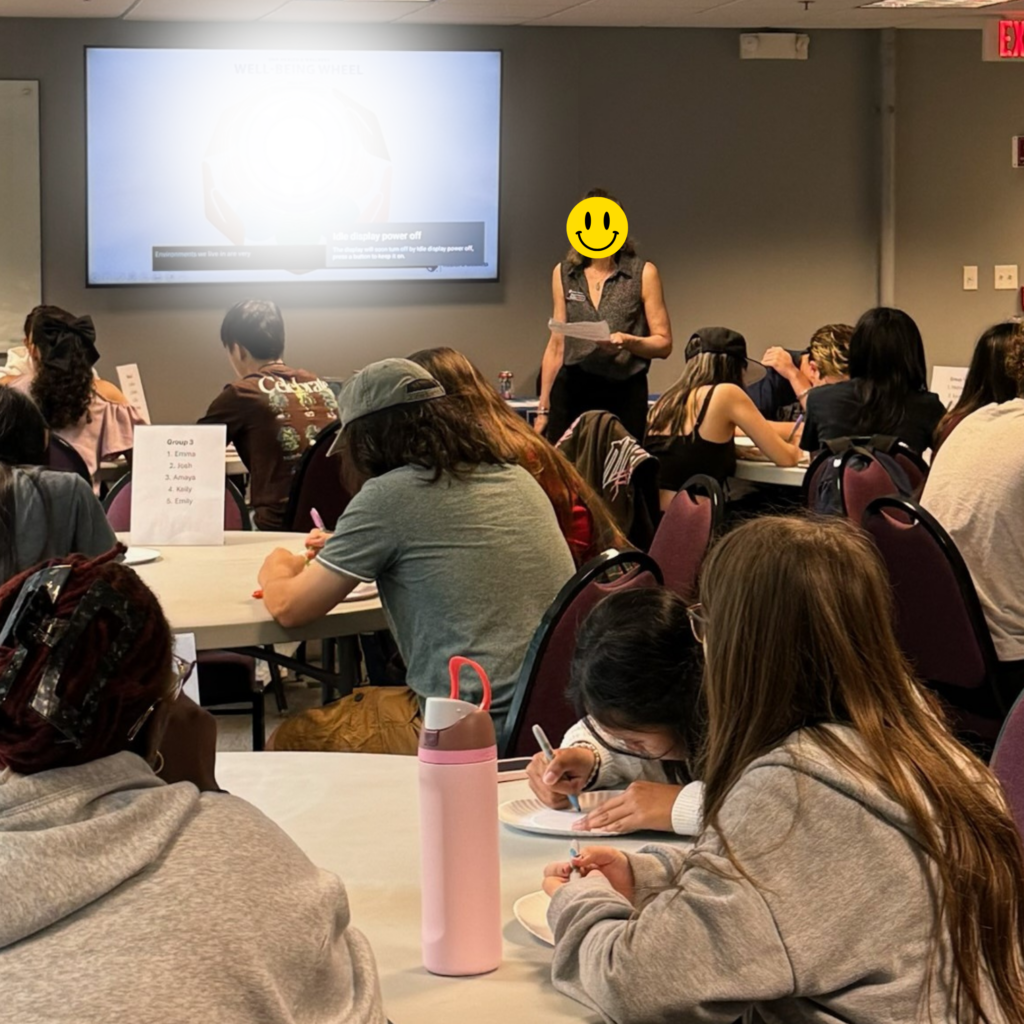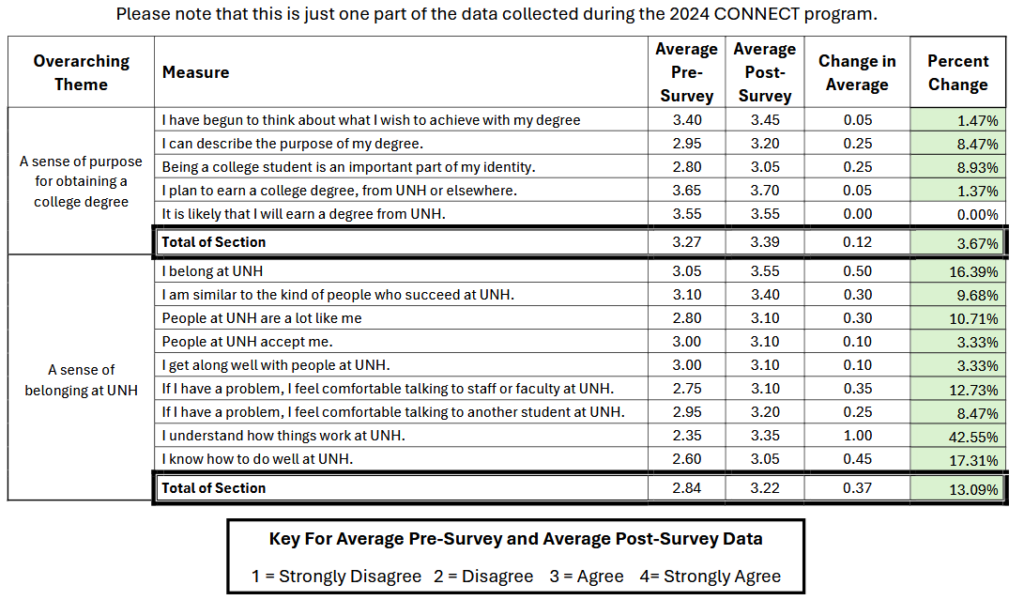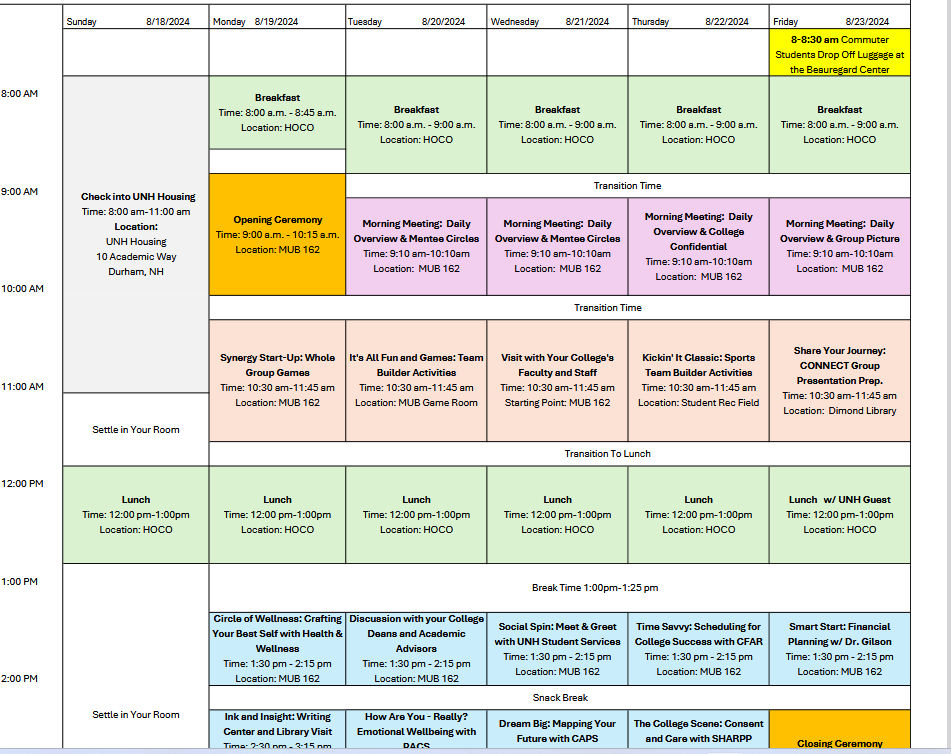A few months after I began my position, I planned an early-arrival program for first generation students and students of color.
““A place of love and fellowship where you get to experience the comfort of a community that wants you and cares about your academic achievement—that is what it means to me.” — Student Participant




“From a staff perspective, this year’s program was one of the best iterations that I have seen.” – University Staff

Here’s what I did to plan the program:
- Budgeting and Purchases:
- Followed program budget of $65,170. Allocated expenses for staffing and additional program requirements.
- Research, Literature Review, Presentations
- Reviewed early arrival program literature to determine common themes and best practices in early arrival programs.
- Presented findings to the University community and sought feedback to share the literature review and proposed program goals.
- Wrote agreement and release forms for participants.
- Program Goals and Evaluation
- Designed program goals aligned with the literature review.
- Designed participant pre- and post-evaluations: 25-question Likert-scale survey aligned with program goals and literature
- Designed two mentor evaluations and “campus partner” feedback forms.
- Collaboration
- Communicated with 31+ internal stakeholders and external stakeholders, including:
- 9 on-campus departments to design workshops aligned with program goals
- On-campus housing to ensure participants had a place to live during the program.
- External and internal catering.
- Planned and created appreciation gifts for more than 40 University collaborators
- Hiring
- Wrote mentor job expectations document.
- Conducted 17 student interviews.
- Created additional student leadership positions (team leaders).
- Curriculum Design
- Designed mentor professional development including sessions on civil rights, accessibility, bias, team building, mental health first aid, and power dynamics.
- Designed 5 days worth of mentor-mentee lesson plans.
- Scheduling
- Designed five-day program schedule for student participants.
- Created detailed instructions for mentors.
- Scouted for program locations including workshop room, game room, outdoor experience field, and student recreation field.
- Recruitment
- Designed Program Flyer and Wrote Invitation Letter.
- Recruited Student Participants through physical mail, email, phone calls and collaboration with on-campus student-serving departments